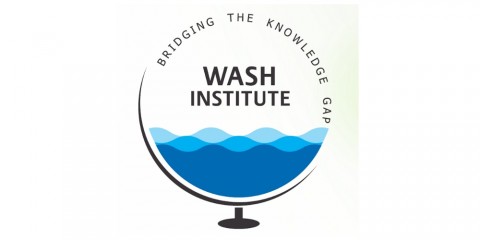Technical Assistance to support Government of India for Swachh Bharat Mission (Gramin/rural)
2016 - 2018 • Water, Sanitation and Hygiene Institute
Purpose
To work together with the Ministry to provide sustainable sanitation solutions to rural areas in India by providing Technical Assistance to MDWS’s Swachh Bharat Mission (Gramin)
Activities
The Project seeks to build the capacities of 1,651 Gram Panchayats (GP) around Ganga river across five states namely Bihar, Jharkhand, Uttar Pradesh, Uttarakhand and West Bengal, assist ten pilot “Iconic Sites” on how to best improve sanitation. These Sites (including the Taj Mahal) will act as examples for the 100 Iconic Sites identified under SBM. All are important historical sites that help the Indian public understand and appreciate the importance of Swachh Bharat and the implementation of the Mission and help MDWS to institutionalize and strengthen the Rapid Action Learning Units (RALU) framework to speed up capacity building on sanitation across the country.
The project also supports the Ministry to develop strong project management systems and tools for increasing efficiencies in procurement, financial management and project delivery. It also aims at ensuring seamless transition to the government personnel to continue to manage SBM activities longer term.
The project has mapped human resource support available at States, districts, blocks and Gram Panchayats (GPs) to understand current capacities and resource gaps. As a result, states such as Bihar, Uttar Pradesh etc. have started to explore the possibilities of engaging Project Management Units (PMUs) and mobilised financial and technical support from Corporates and academic partners to assist the prioritized Ganga districts.
The Project also facilitated in the creation of an enabling overall policy environment. Existing SBM - G guidelines have been revised to incorporate changes, amendments and suggested best practices. In addition, guidelines have been prepared and issued for ODF Sustainability, and Gender Issues in SBM-G; Amendments to IEC guidelines are being made based on inputs from various workshops and consultations organized by the PMU.
The Project has helped in strengthening Monitoring Information Systems. The project conducted an independent evaluation of MIS which led to enhancing the data integrity MIS data by tracking and following with States for removal of duplicate entries. Capturing of ODF verification such details to strengthen monitoring and periodic reminders for carrying out verification. Development of mobile app for carrying out the physical verification to validate the data in MIS. Uploading of ODF certificates from concerned authority.
Countries of activity
Location of main activity
Objectives
- Improved sanitation status of Gram Panchayats (GPs) along the River Ganga
- Improved sanitation in Iconic Places (high footfall tourism places) under SBM rural special initiative
- Comprehensive learning, monitoring and evaluation system for SBM progress through Rapid Action Planning Unit (RALU) across all States established
Further information
Research or implementation partners: KPMG
Biggest successes so far:
- Increased sanitation coverage which is around 70% presently.
- Around 215 districts and more than 2.5 lakh villages have been declared Open Defecation Free
- All villages on the bank of river Ganga have been declared ODF as part of Namami Gange Initiative
- 20 iconic places selected for Swachhta Iconic Places (SIP) initiative
- All ministries and departments working focused on Swachhta (Cleanliness) as part of Swachhta Action Plan (SAP) and proposed 12000K core for Swachhta for FY 2017-18
Filter tags
Behaviour change Bill & Melinda Gates Foundation Capacity development East Asia & Pacific Enabling environment and institutional strengthening Faecal sludge treatment processes Local NGO Operation, maintenance and sustainable services Political processes and institutional aspects Politicians and local decision makers Rural Rural areas Specific to one or several countries Technology comparisons Treatment of faecal sludge
Attached files
Links

Uploaded by:
Elisabeth von Muench (Elisabeth)














